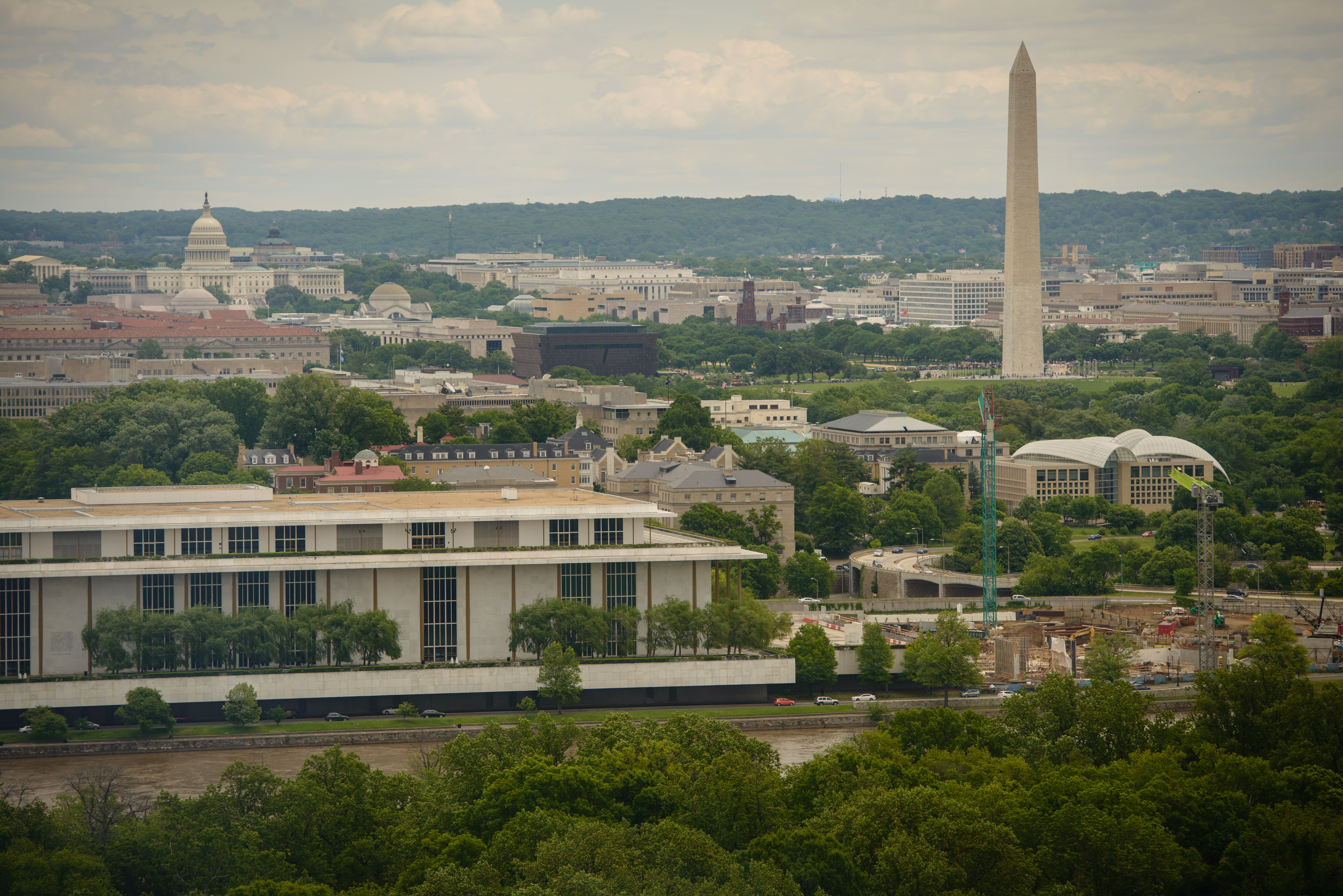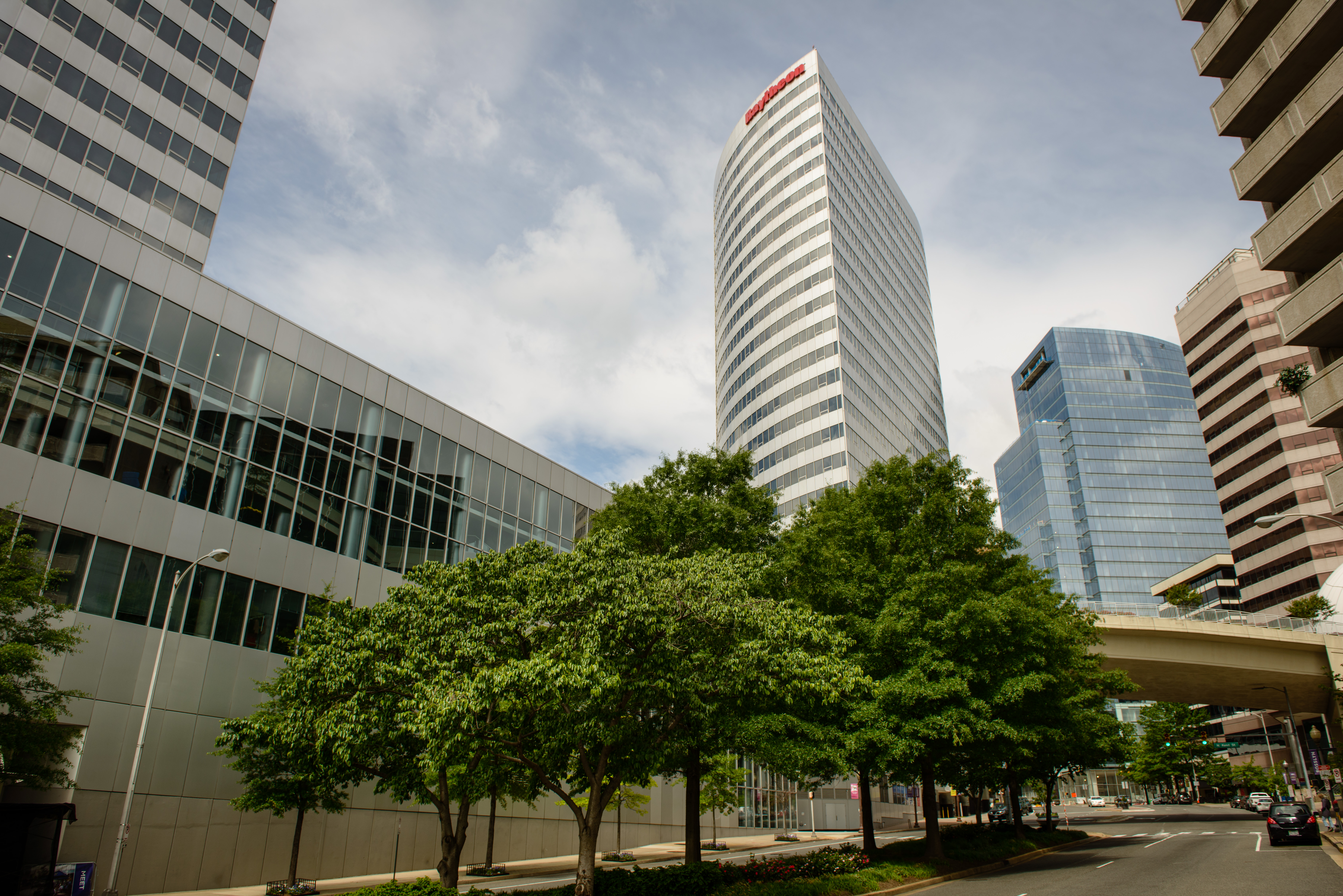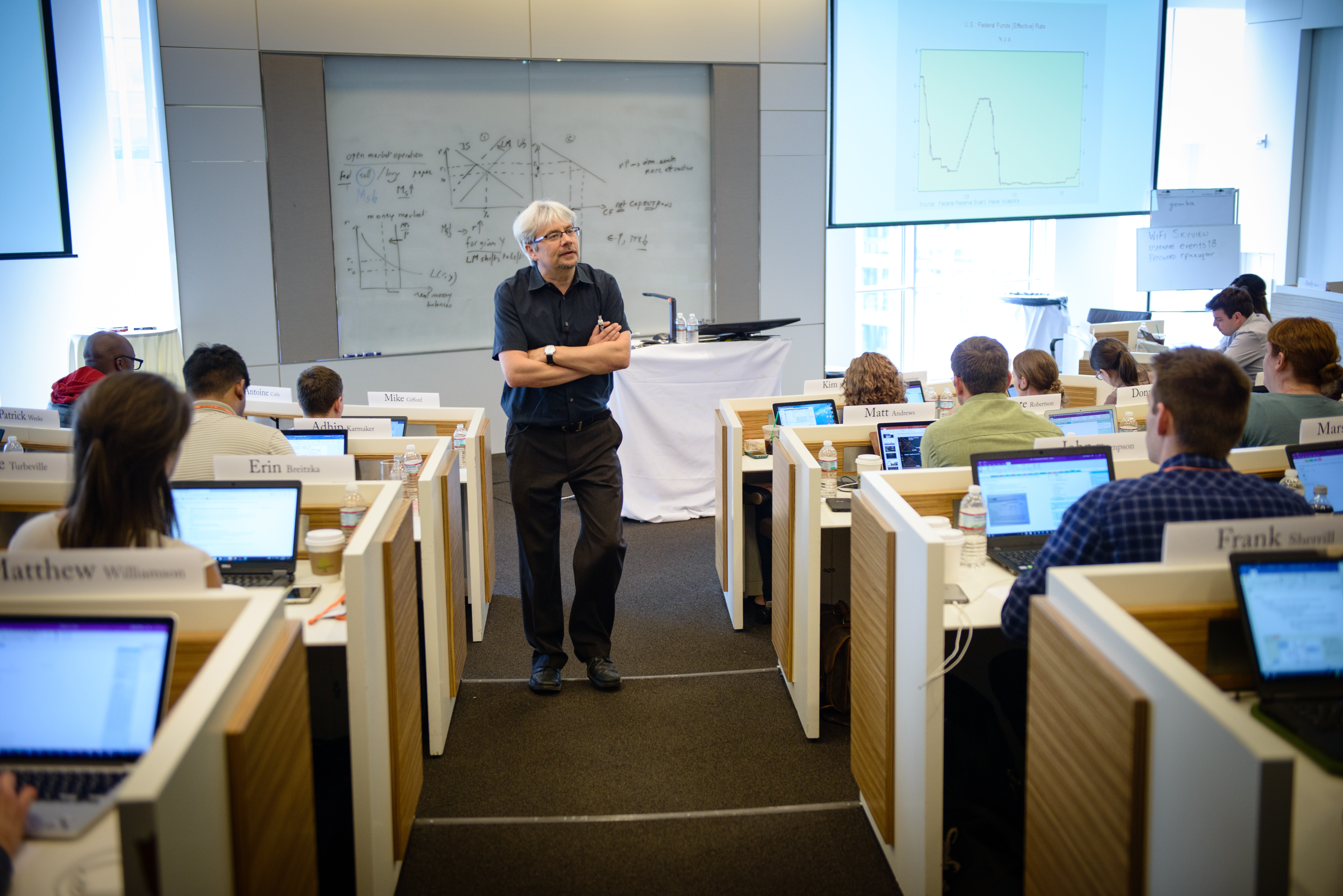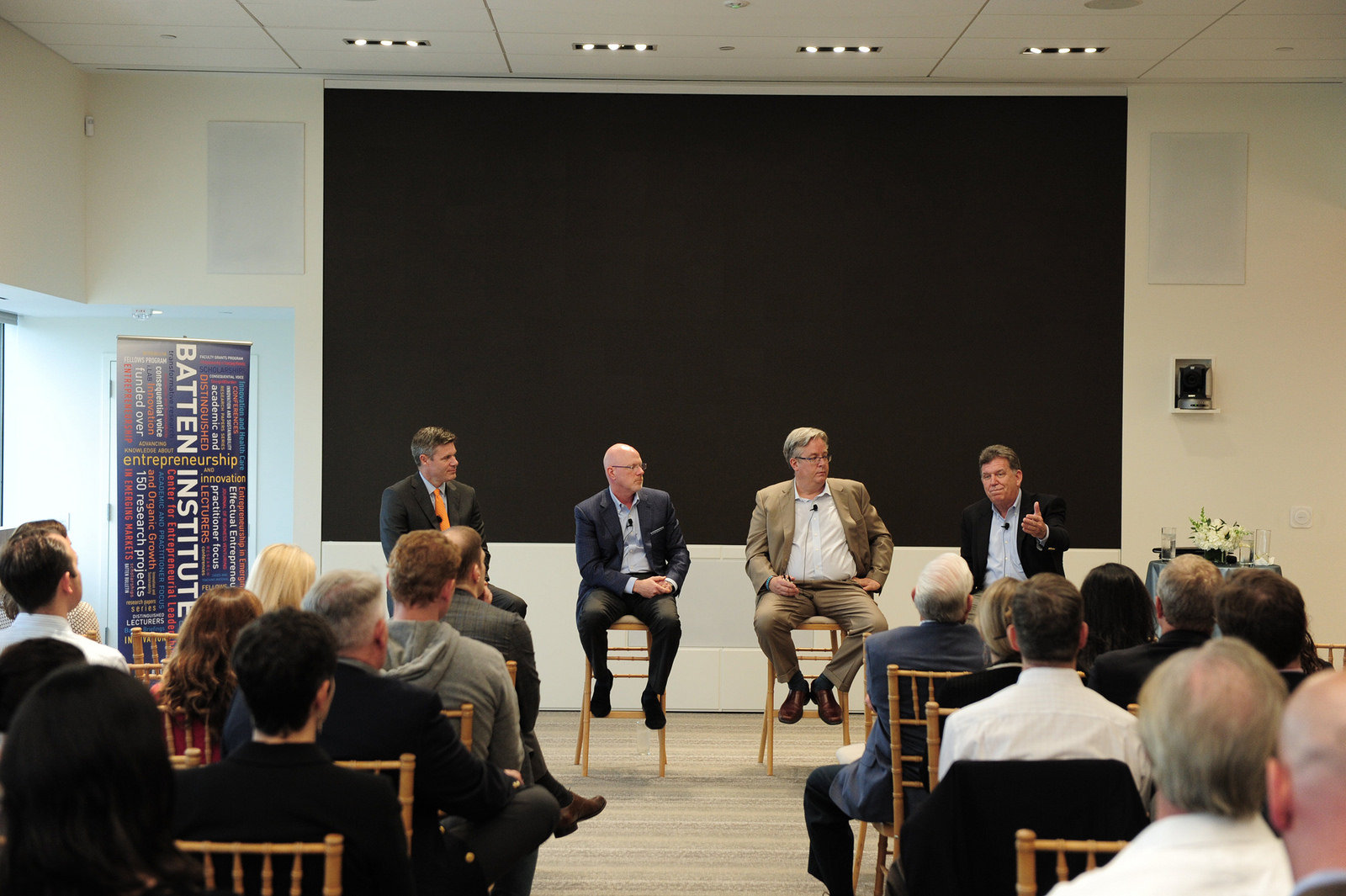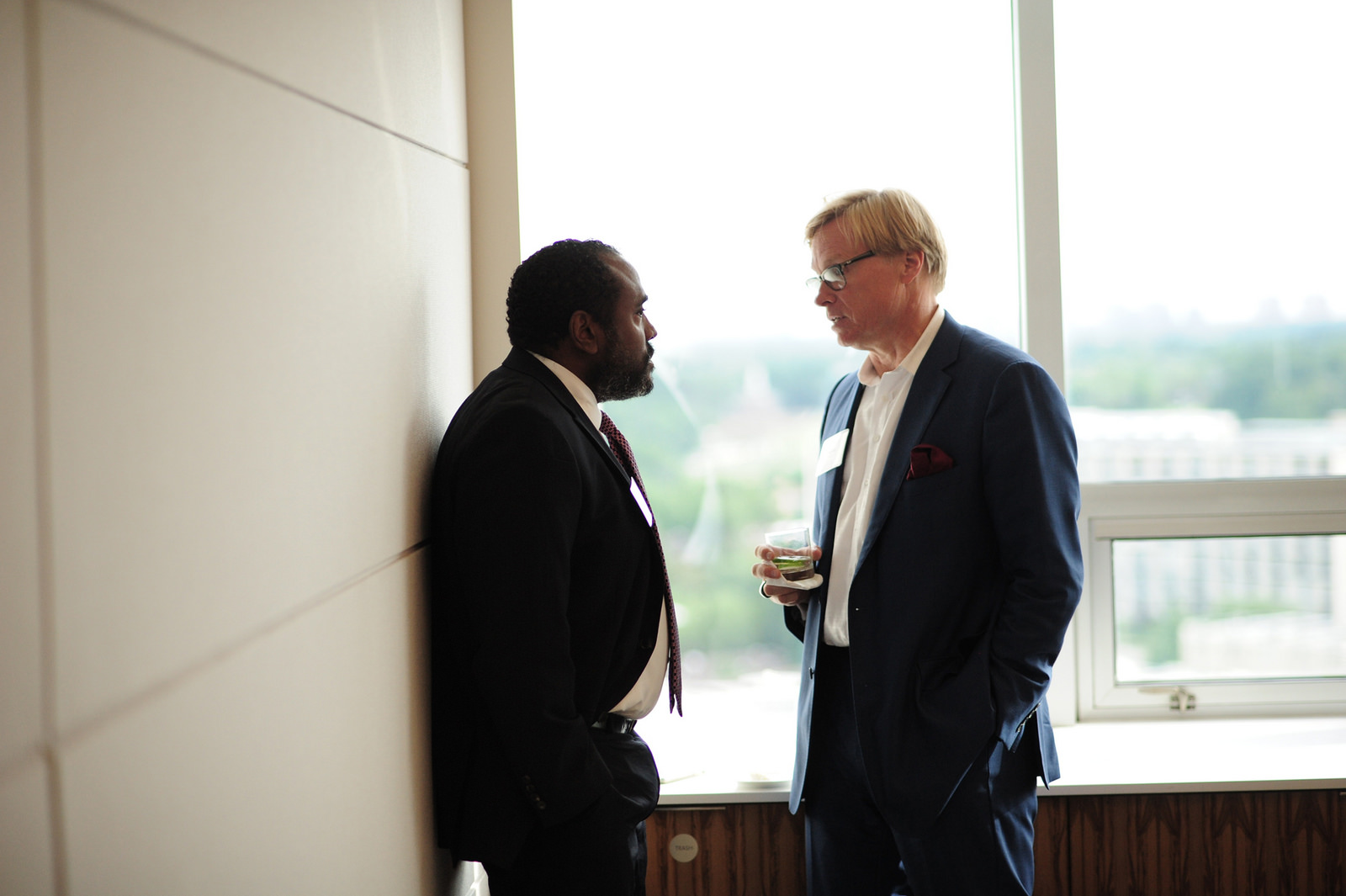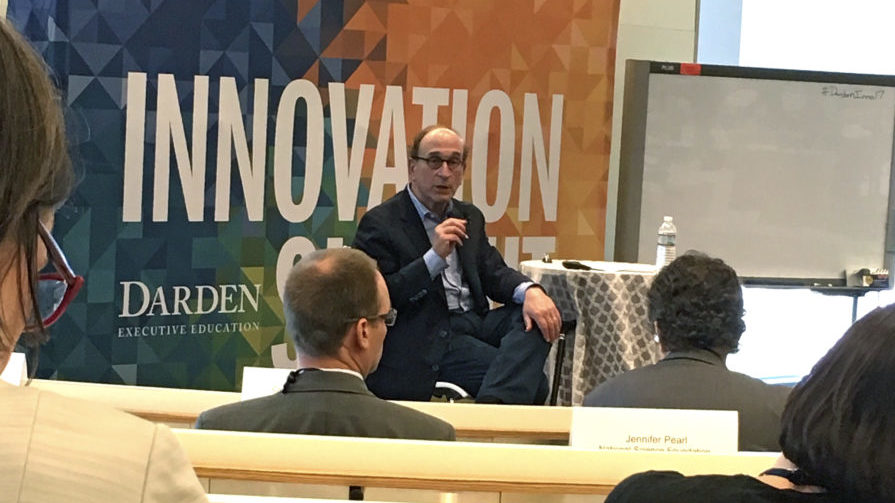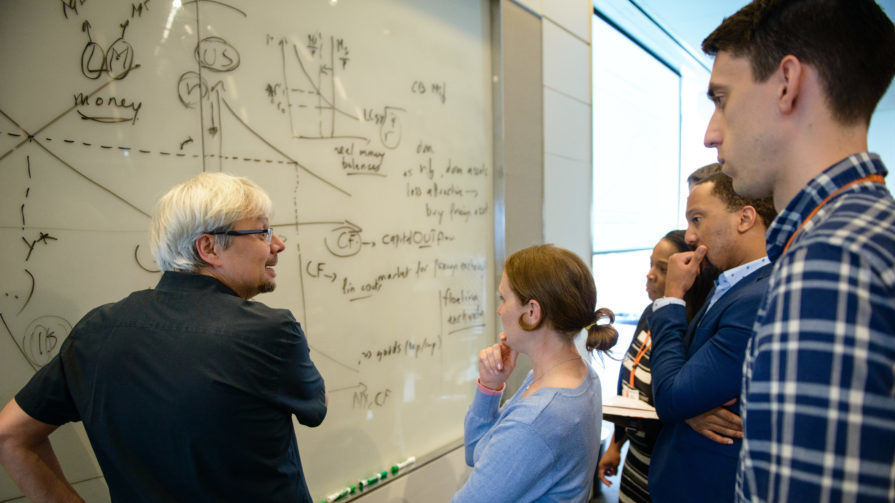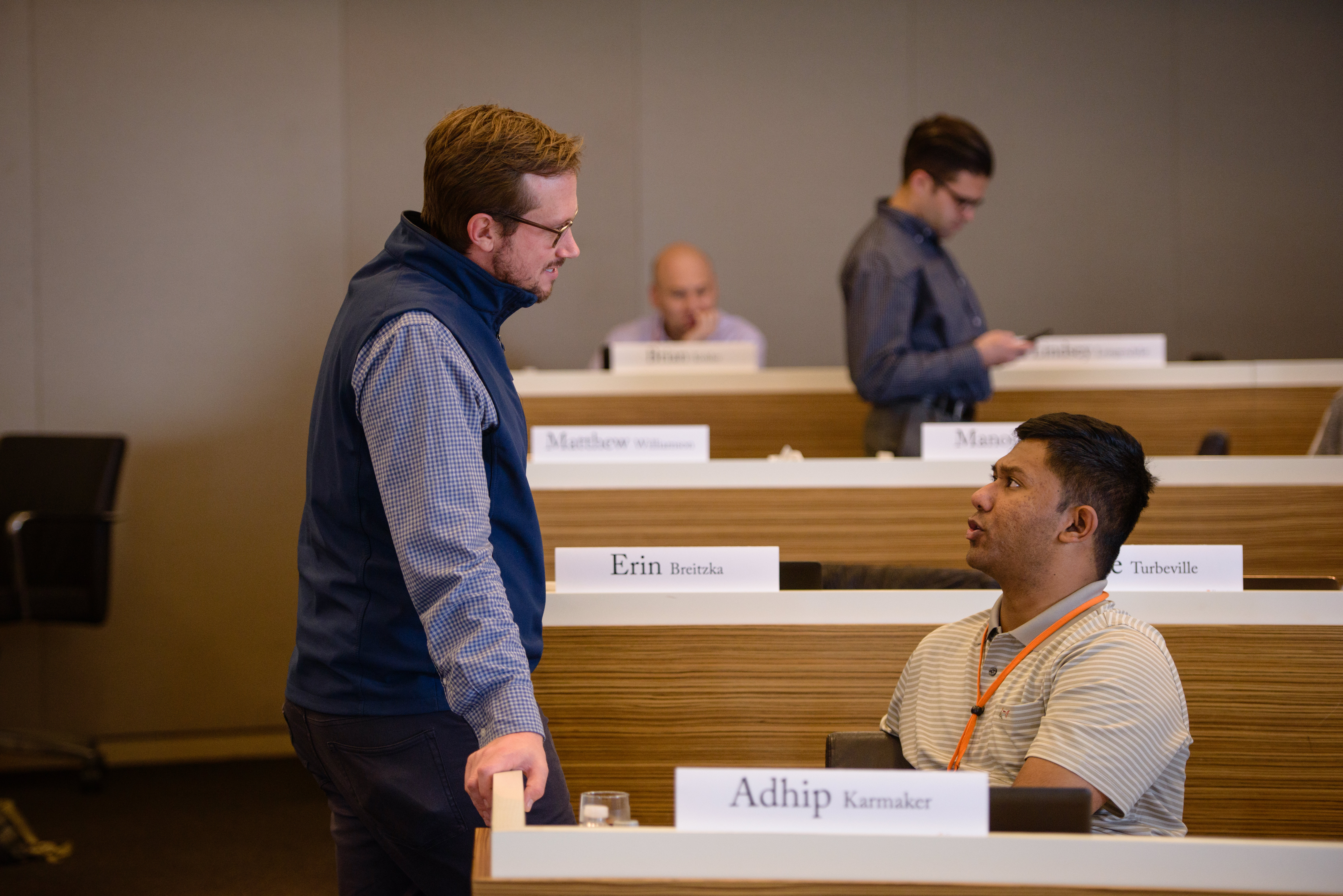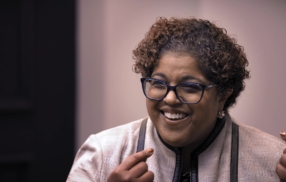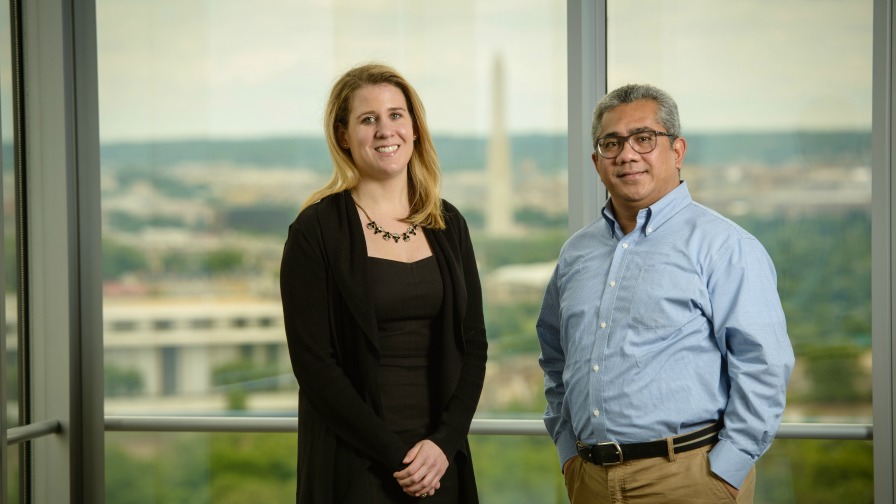
UVA Darden Efforts Thrive in Washington DC Area
By Dave Hendrick
The University of Virginia Darden School of Business has hit the ground running in the Washington, D.C., area.
Since first announcing plans to expand into the Washington, D.C., area just over a year ago, the School has successfully launched a fully enrolled Executive MBA cohort, placed 10 staff members on location in newly leased office space, laid the groundwork for deepening Executive Education relationships and programs, collaborated on vital research, and brought together top practitioners for a host of programming.
And while the efforts are diverse, the small, dedicated team is working in a collaborative manner, “like spokes on a wheel,” according to Professor Greg Fairchild, associate dean for Washington, D.C., area initiatives.
Fairchild and school leaders are actively looking for ways to benefit the Darden community and its interests in the D.C. area, enriching all facets of the MBA program, seeking collaborative opportunities for faculty members and the School’s Centers of Excellence and generally spearheading activities that may help lift the profile of Darden while aiding the school’s mission in meaningful ways.
While the School has made a splash in a short period of time, Fairchild makes clear that Darden is building for the long-term in a market that is the eighth largest in the United States for corporate headquarters.
“We’re doing more than just planting flags, we’re building relationships,” said Fairchild. “We want to be the preeminent business school at the nexus of business and public policy.”
Demand Grows for the Executive MBA Program in Rosslyn
Darden had high hopes when expanding its Executive MBA program to the nation’s capital, convinced that conveniently scheduled classes taught by top professors in the booming Washington, D.C., area would prove to be a strong draw for exceptional learners interested in an MBA.
Expectations were met and exceeded, with 61 students — the School had ball parked 50 — enrolling in the D.C. cohort as the Class of 2018.
The students have a myriad of backgrounds. They are veterans, entrepreneurs, bankers and politicos, and they travel to class in Rosslyn, Virginia, from across town and across the world.
D.C. resident Meredith Aronson (Class of 2018) said the program coming to the area was a case of “right place, right time” for her, as she considered ways to grow in her role and accelerate her career. Aronson, who directs strategy and partnerships for the National Fitness Foundation, had recently transitioned out of a similar role with the Obama administration’s Council on Fitness, Sports & Nutrition and saw an opportunity with Darden to grow as a young professional.
“This program gives me the perfect opportunity to take my government and nonprofit experiences into the business sector. I’m learning about what it takes to propel a business forward in an increasingly complex and global environment,” Aronson said. “Because of Darden, I’m confident in my ability to meaningfully contribute to a company’s brand, business and society.”
Joe Spencer (Class of 2018) makes the regular flight from Kansas City, Missouri, to Reagan National Airport to join his D.C. cohort.
Spencer discovered Darden via his son, Connor, who is one of his 11 children and recently graduated from the McIntire School of Commerce at UVA. When picking up his son after graduation to help him move from Charlottesville to Washington, D.C., Spencer said his son told him he had to go see Darden on the way out of town.
“I went by Darden and walked out into that beautiful quadrangle. It got me thinking again,” Spencer said.
Spencer learned of the new cohort based in Rosslyn, Virginia, just across the Potomac from Washington, D.C., and a few months after first standing in Flagler Court, Spencer was being welcomed as a member of the Class of 2018.
Spencer, senior director of business development at Osmose Utilities Services, aspires to one day run his own business. He sees the transformation in his thinking underway, with courses in accounting and finance, for instance, “changing the way I think about, know and understand business.”
While Spencer joins a handful of other classmates who commute from across the U.S., Ery Zaidir (Class of 2018) takes the prize for most airline miles logged with his commute from Jeddah, Saudi Arabia.
Zaidir works in risk management for the National Commercial Bank of Saudi Arabia in Jeddah, travels 20 hours each way to the area, and wakes up for 2 a.m. classes delivered online twice a week.
The Indonesian banker, whose enrollment at Darden was assisted by the Indonesia Endowed Fellowship Fund for Global Executive MBA Students, said he’s been particularly taken with the lessons gleaned from case studies involving why businesses fail.
“The way I was taught in the past cannot be compared to the way they teach us at Darden,” Zaidir said. “If all the teachers and all the faculty members in Indonesia taught people the way they teach students at Darden, maybe we could compete with America.”
Indeed, Zaidir isn’t certain how he’ll use his Darden education in the future, whether growing into a higher level generalist role in his own company or taking the plunge on an entrepreneurial venture, but he increasingly thinks back to his previous dream of being a faculty member at his Indonesian alma mater.
“Maybe I can go back and teach,” Zaidir said.
Executive Education Expands Its Presence
Darden Executive Education has longstanding ties to area companies and more than four decades of work developing courses with the U.S. military, but sees additional opportunities with Darden’s expansion in D.C.
The Executive Program (TEP), the flagship program of Darden Executive Education, is hosting a three-day residency in Washington, D.C., as part of the full three-week program in June. During the residency, executives will connect with policymakers and experts on subjects such as trade policy, immigration, global markets and cybersecurity.
“We chose Washington, D.C., in part because it’s a global center and home not only to the U.S. government but also multinational global institutions like the World Bank and the International Monetary Fund,” said Professor Alan Beckenstein, TEP faculty leader. “We think of our positioning as taking a global viewpoint from the D.C. vantage point.”
In May, Executive Education hosted its second annual Innovation Summit in the Washington, D.C., area, a day of programming devoted to enabling and growing innovators, featuring Professor Ed Hess.
Fairchild said the School is also considering programs for staffers on Capitol Hill, and hopes to make deeper inroads with the many privately held consulting firms that struggle to offer the training and development programs offered by some of their larger peers.
Darden Opens New Office in Rosslyn
Darden now has 10 staff members spending all or much of their time in the D.C. area, with key personnel from the Executive MBA program, Executive Education, Career Development, Alumni Career Services, Admissions and Advancement now on the ground.
The new facility includes three closed offices, but it is mostly an open, modern and modular space with flexible workstations and meeting spaces. Fairchild said it lends to a startup-like culture as Darden grows in D.C.
Creating a Nexus of Business and Public Policy
The D.C. location has made possible a host of great programming in a short period, bringing in government, business and public policy luminaries for up close interactions with students and alumni.
In March, White House Director of Legislative Affairs Marc Short (MBA ’04) and GE Aviation’s head of government relations Peter Prowitt (MBA ’81) joined Fairchild to discuss the role of the MBA in public policy jobs.
Shortly thereafter, former Federal Reserve Chairman Alan Greenspan and NBC news correspondent Andrea Mitchell addressed the Executive MBA cohort.
School leaders in May launched the Business Innovation and Climate Change Project Initiative, a nonpartisan, multidisciplinary effort intended to inform policymakers in Washington, D.C. The project will include biannual Sustainability Innovators’ Roundtables, thought leadership events and ongoing research, among other efforts.
The climate change initiative comes on the heels of the Batten Institute’s Global Innovators Roundtable event held in D.C. in late April. The biannual events bring together some of world’s top scholars in the area of innovation.
As Darden continues to make inroads in the region, the School increasingly expects to be an active voice in timely conversations.
“If we believe that D.C. is a city of ideas, then how can we as Darden comment and collaborate on those ideas,” Fairchild said. “It’s Important that we be available and invited into the larger discussion.”
The University of Virginia Darden School of Business prepares responsible global leaders through unparalleled transformational learning experiences. Darden’s graduate degree programs (MBA, MSBA and Ph.D.) and Executive Education & Lifelong Learning programs offered by the Darden School Foundation set the stage for a lifetime of career advancement and impact. Darden’s top-ranked faculty, renowned for teaching excellence, inspires and shapes modern business leadership worldwide through research, thought leadership and business publishing. Darden has Grounds in Charlottesville, Virginia, and the Washington, D.C., area and a global community that includes 18,000 alumni in 90 countries. Darden was established in 1955 at the University of Virginia, a top public university founded by Thomas Jefferson in 1819 in Charlottesville, Virginia.
Press Contact
Molly Mitchell
Senior Associate Director, Editorial and Media Relations
Darden School of Business
University of Virginia
MitchellM@darden.virginia.edu


